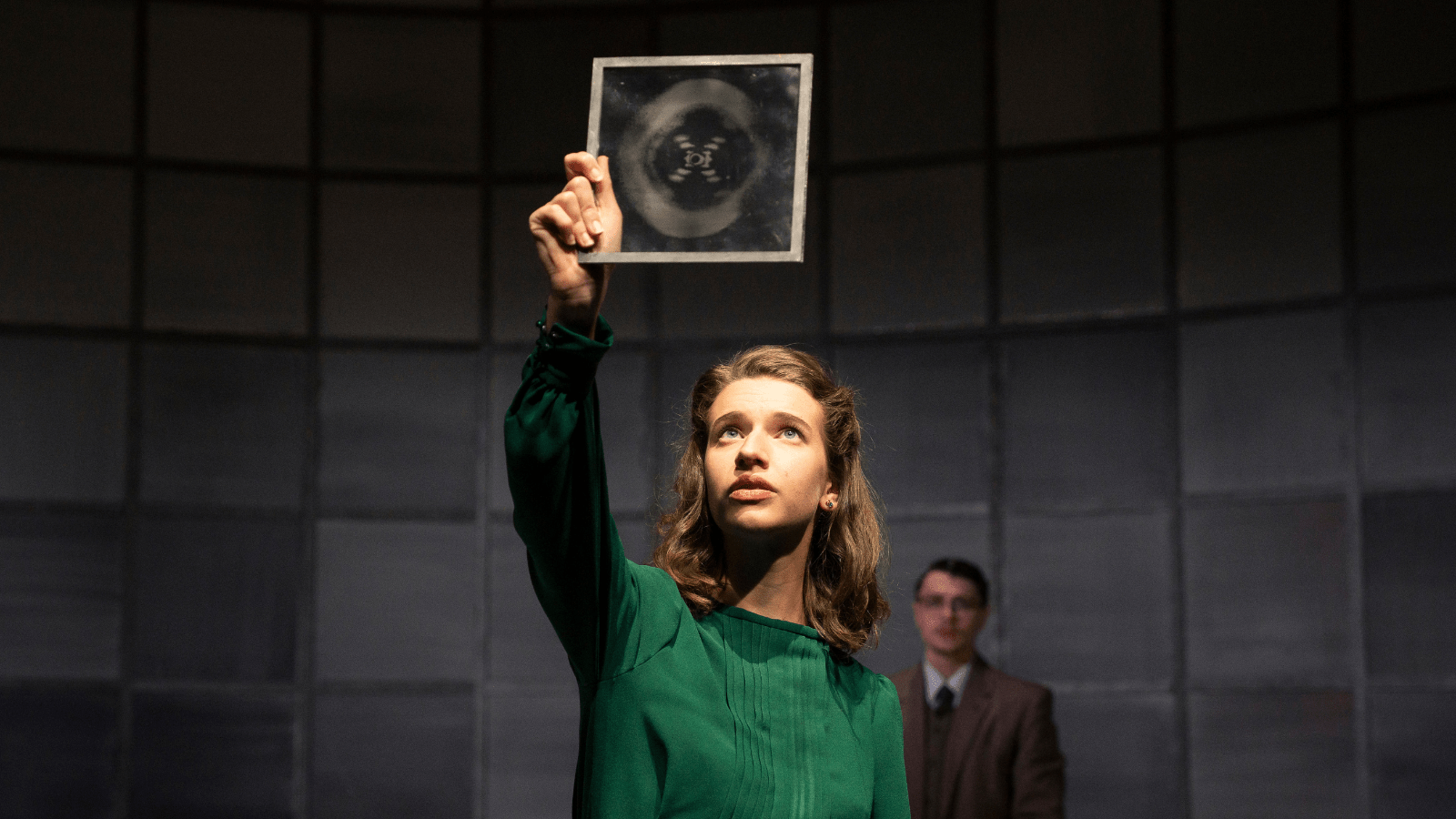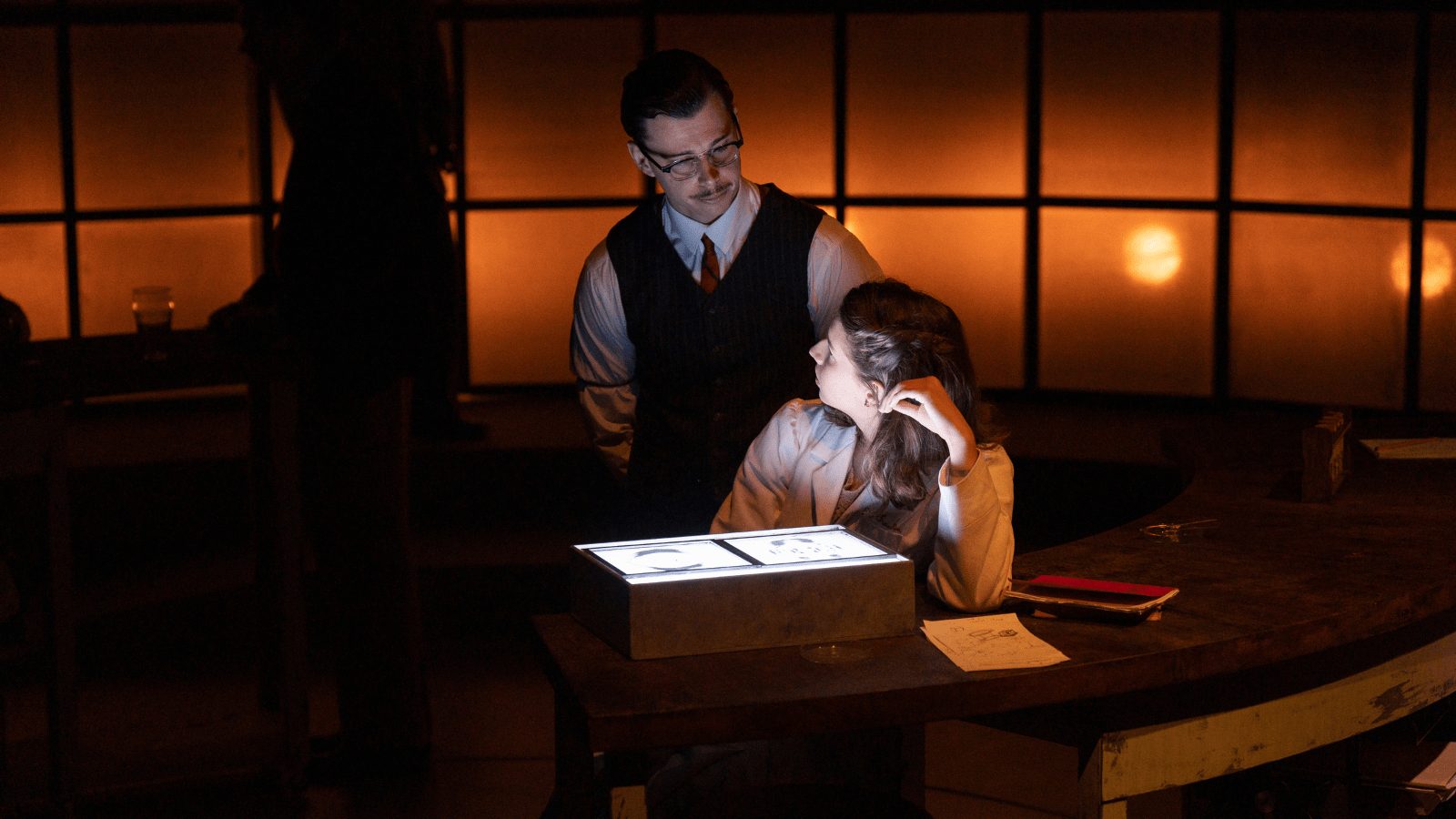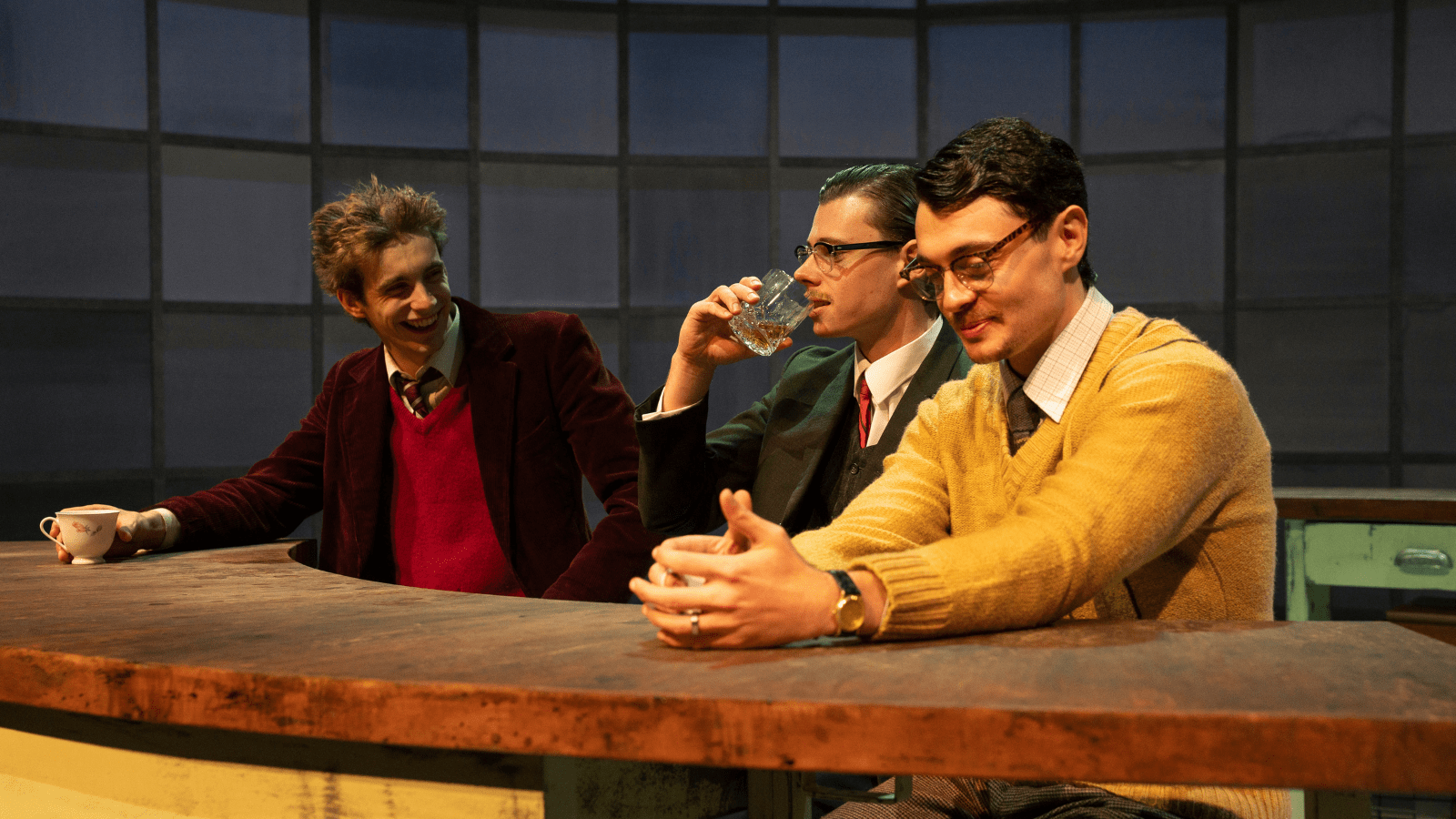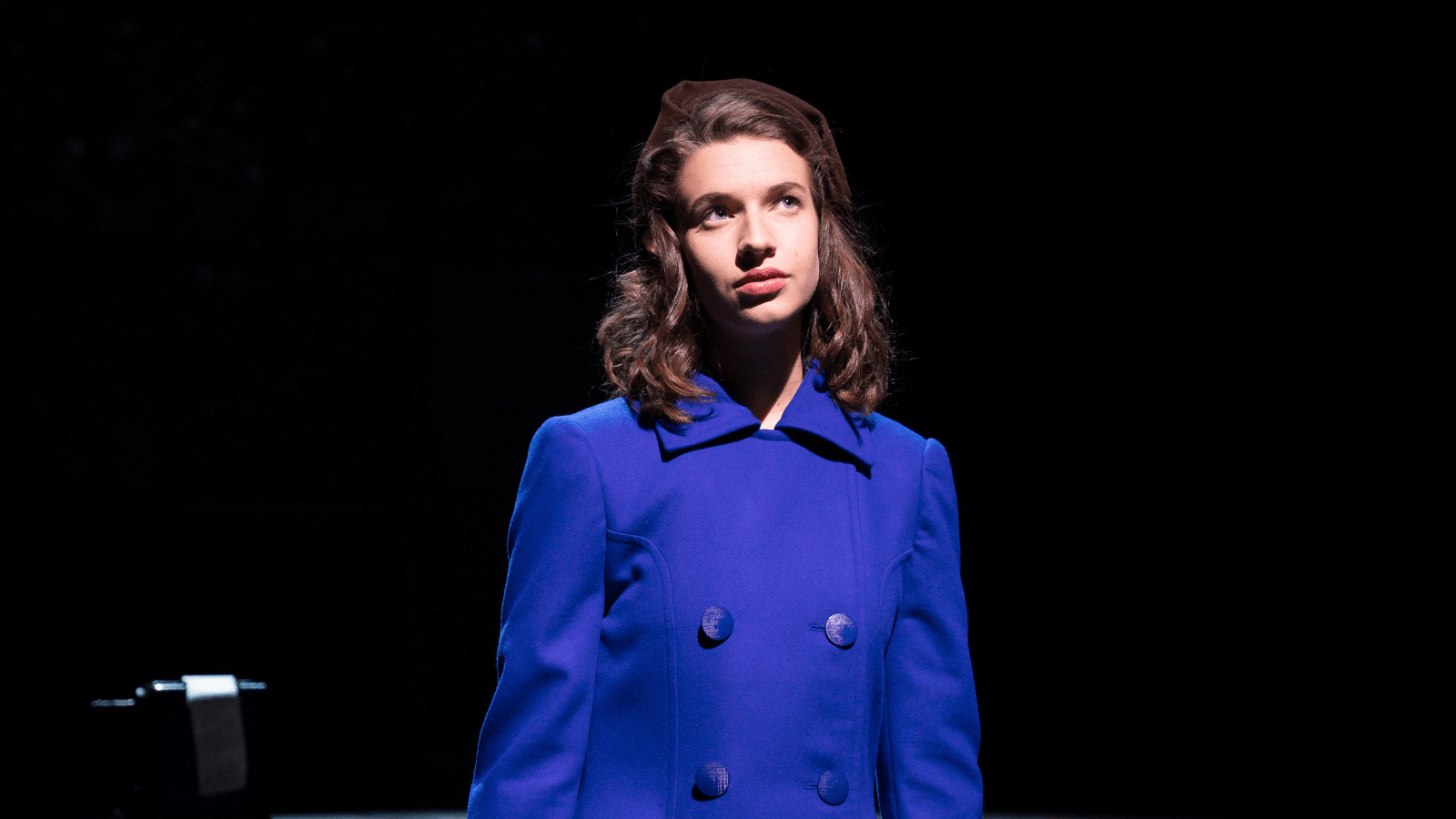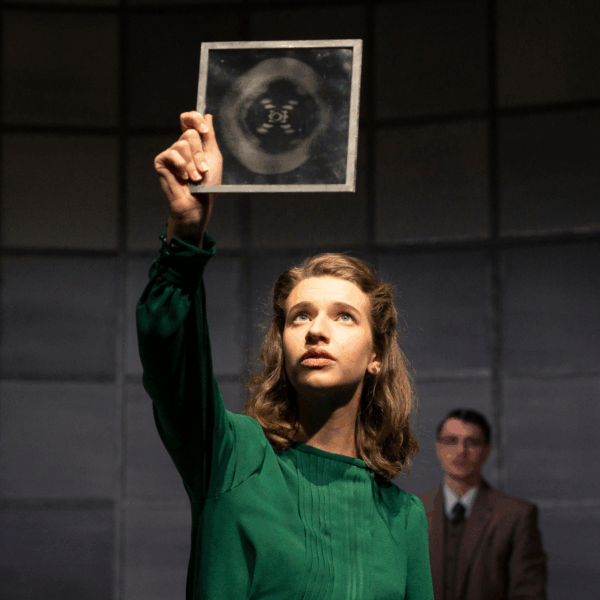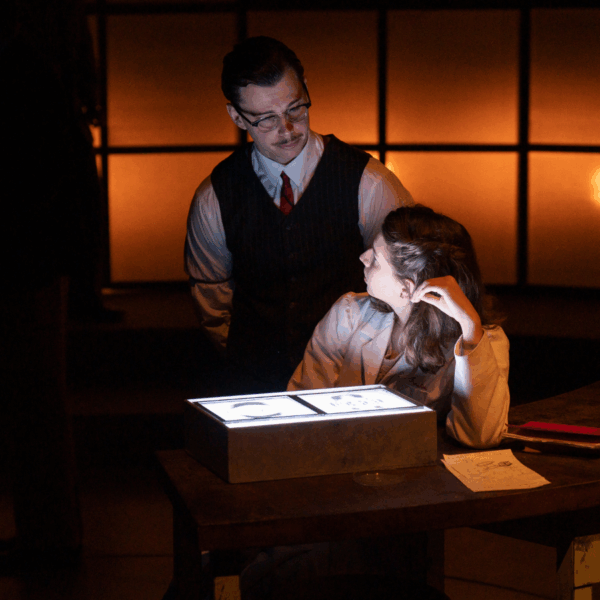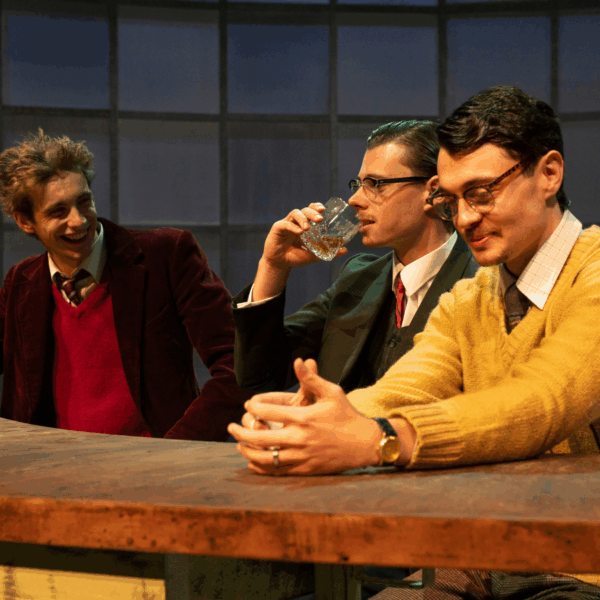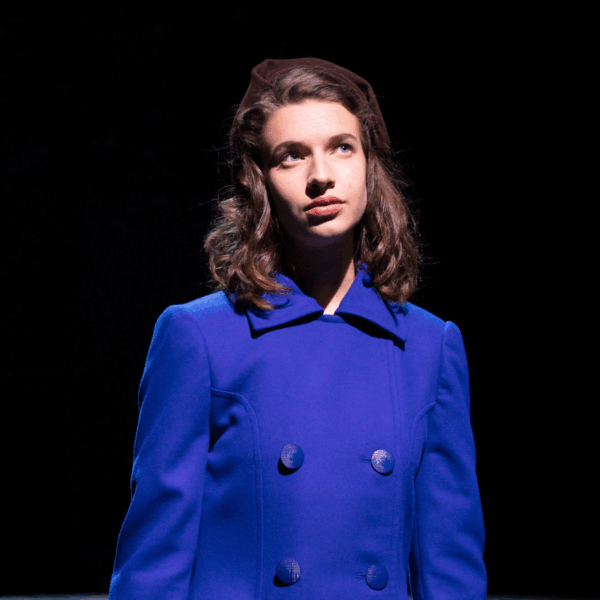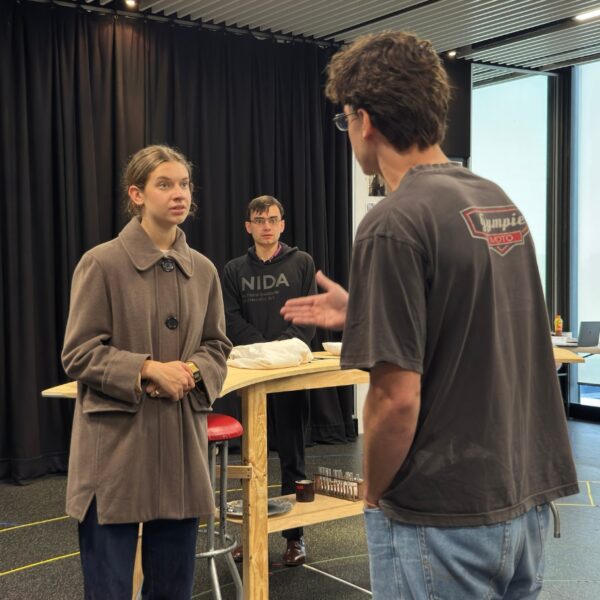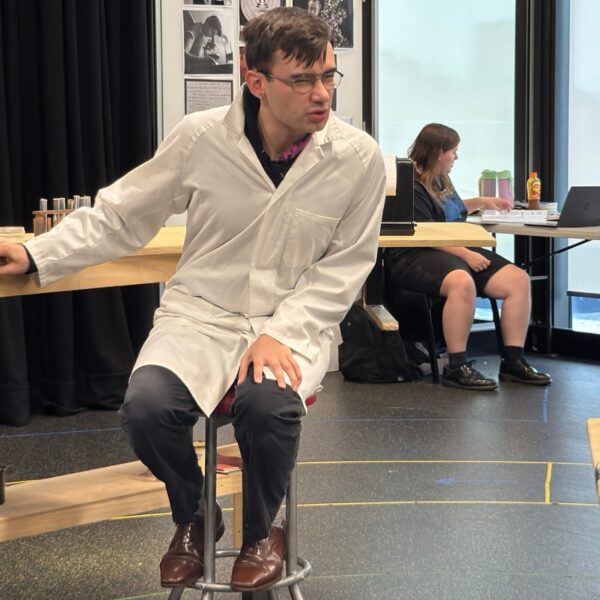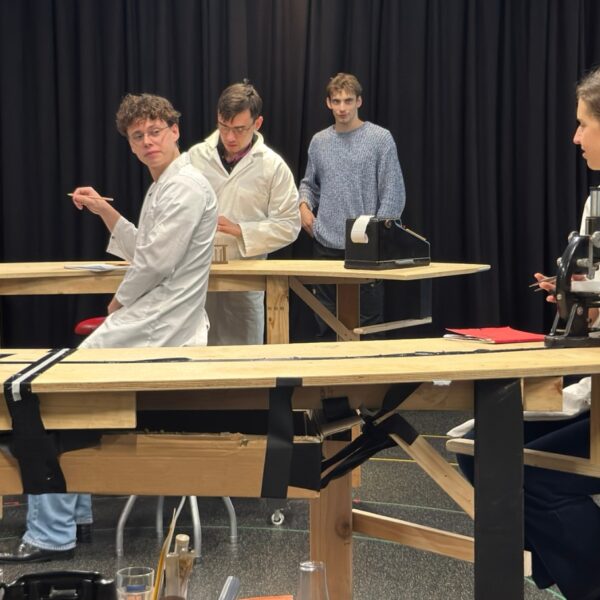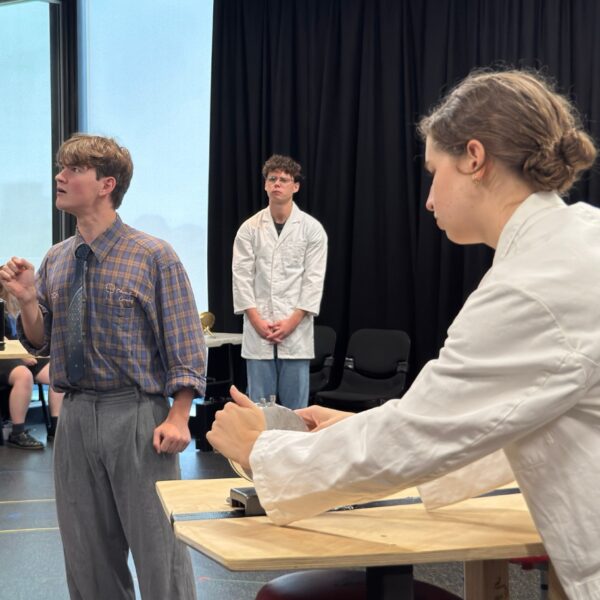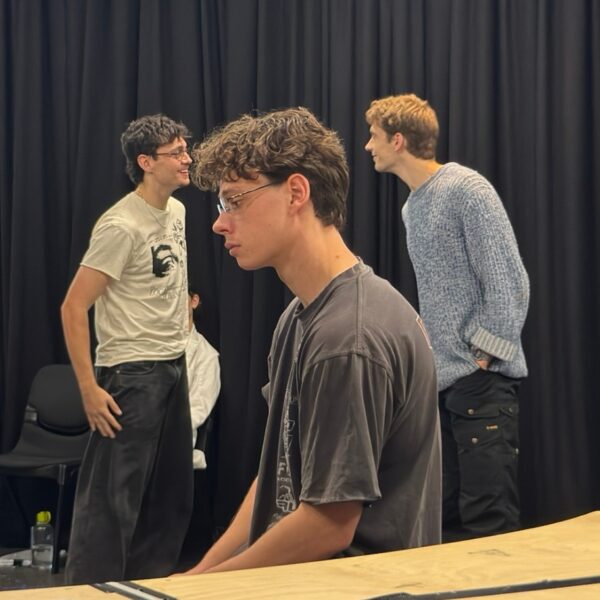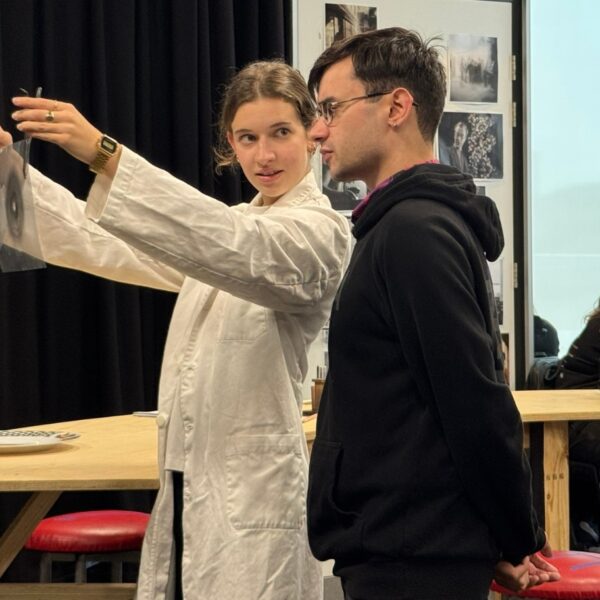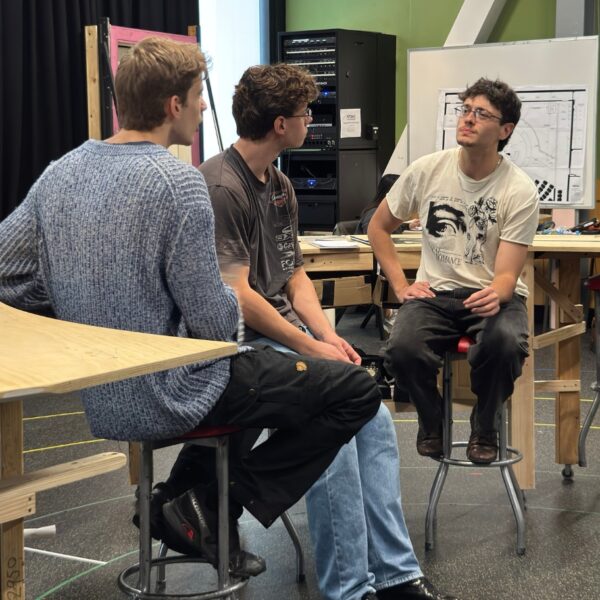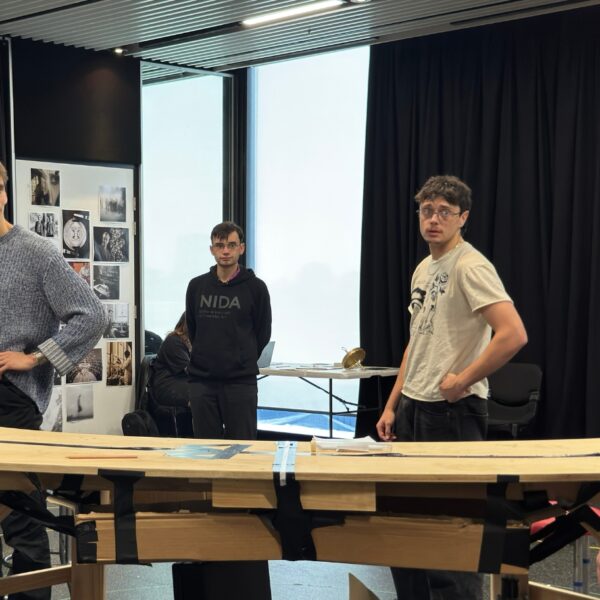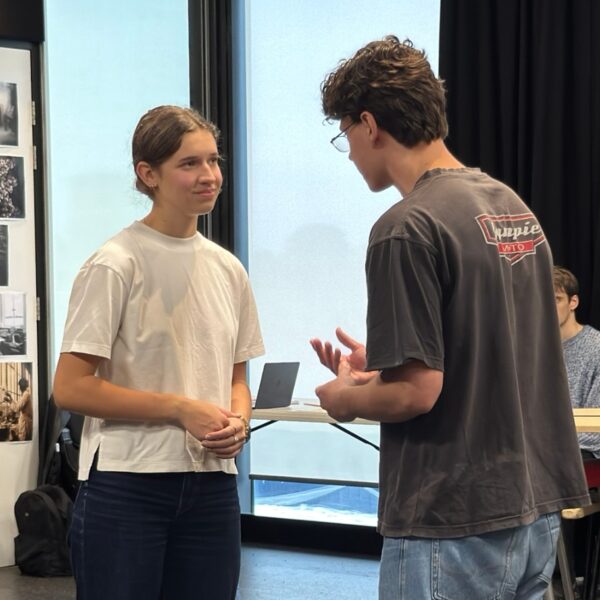About the show
She Found the Code. They Took the Glory.
It’s 1951, and the race is on to unlock the secret of life. At its centre is Rosalind Franklin, a brilliant young scientist whose pioneering work captured the image that would lead to the discovery of DNA’s double helix—transforming science forever. Yet her contribution was nearly forgotten.
Anna Ziegler’s acclaimed, West End-hit play shines a light on an unsung scientist and the fierce ambition, sexism, and sacrifice behind one of the greatest discoveries of the 20th century.
Who gets to write history—and who gets left out?
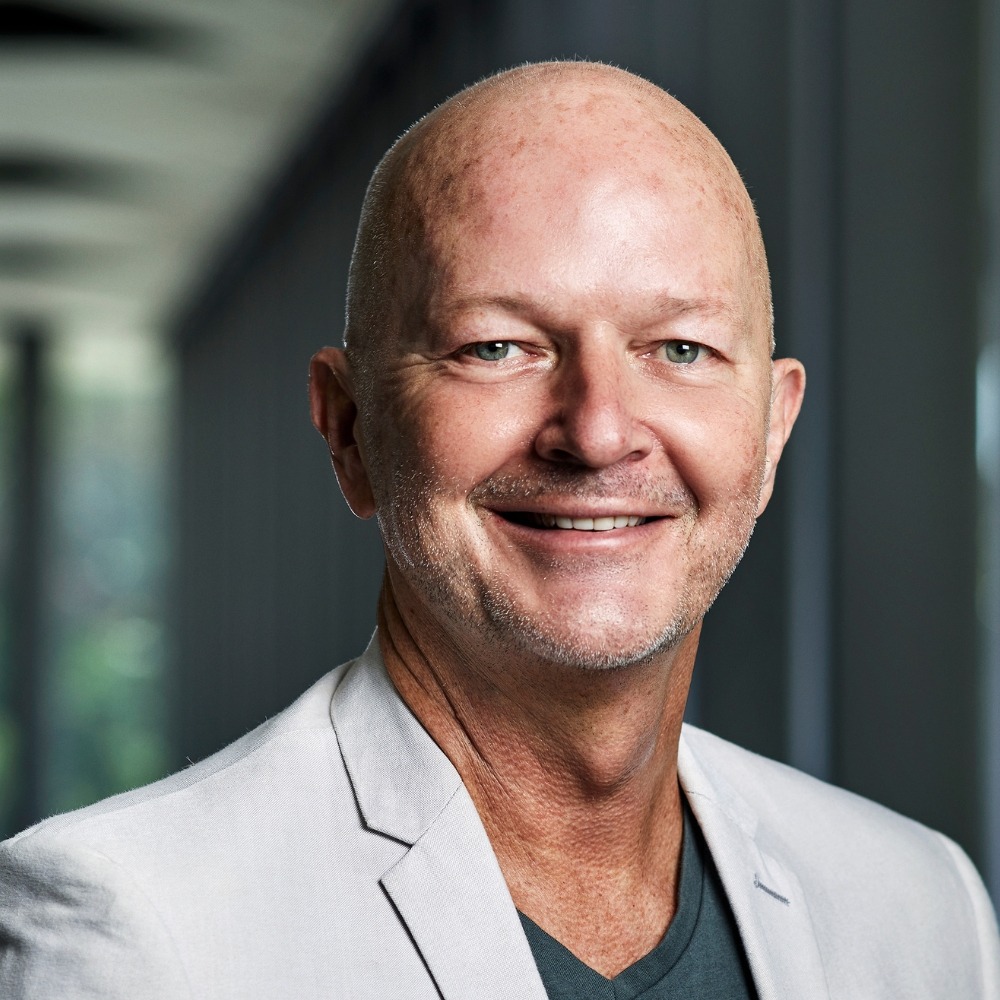 David Berthold is Artistic Director in Residence at NIDA, where he leads artistic planning and programming. He is one of Australia’s most prominent theatre directors and cultural leaders.
David Berthold is Artistic Director in Residence at NIDA, where he leads artistic planning and programming. He is one of Australia’s most prominent theatre directors and cultural leaders.
As a theatre director, he has directed for most of Australia’s major theatres companies, as well as in London and Berlin. As an Artistic Director, he has led transformational change at several significant arts organisations. He was Artistic Director of the $22m multidisciplinary international arts festival Brisbane Festival (2015-19) – Queensland’s highest attended event – Artistic Director and CEO of La Boite Theatre Company; Artistic Director and CEO of Griffin Theatre Company; Artistic Director and CEO of Australian Theatre for Young People; and Associate Director of Sydney Theatre Company. He is a member of the Judging Panel of the Sydney Theatre Awards, a Trustee of the Rodney Seaborn Playwrights Award, sits on the Board of Directors of Australian Plays Transform (APT) – the national play development and publication body – and on the Board of Directors of HotHouse Theatre.
In the last few years, he has been a member of the NSW Government’s Theatre and Musical Theatre Arts Advisory Board and chaired the Judging Panel of the Nick Enright Prize for Playwriting (NSW Premier’s Literary Awards). He has also served on many government and industry panels and committees as an advisor, including for the Australia Council, Arts Queensland, Create NSW, Opera Queensland, and the QUT Creative Industries Faculty Advisory Committee.
Is life a race?
That question pulses through Photograph 51—sometimes spoken aloud, more often hanging in silence. The men around Rosalind Franklin take the answer for granted. “The race is on,” says Watson, “I’ve gotta get in the race.” Crick offers a darker irony: “If life is the ultimate race to the finish line, then really we don’t want to win it. Shouldn’t want to win it. Should we?”
Rosalind Franklin never answers. She’s too immersed in the work. “I just do my work,” she says—not for acclaim or legacy, but for truth. Yet her refusal to perform ambition isolates her. The more exacting her method, the more alone she becomes. “I work best when I work alone,” she insists. But solitude, over time, becomes its own quiet sorrow.
Anna Ziegler’s play explores the cost of speed and spectacle—what’s sacrificed when discovery is prized over dignity, answers over questions, credit over care. And it asks: what happens when someone chooses a different tempo? What gets lost when brilliance doesn’t shout?
All the characters in this play are in their twenties or thirties—brilliant, restless young people still discovering who they are, driven by ambition, uncertainty, and the pressure to prove themselves. The stakes aren’t only scientific—they’re emotional, personal, existential. And for Franklin, the only woman in the room, the risks are even greater.
Franklin didn’t win the race. But she changed the field. She made the invisible visible. Her legacy—like the image she captured—is haunting in its precision and enduring in its impact.
Photograph 51 isn’t just about a scientific breakthrough. It’s about the people drawn into its orbit: those who glimpsed it, those who seized it, those who misread it, and the one almost erased from its history. It invites us to reconsider what progress really means—not only in science, but in human relationships. What’s the cost of being first? What do we miss when we move too fast? What do we fail to recognise in each other? “We could see everything,” Franklin reflects, “except, sometimes, what was right in front of us.”
Our production leans into that ambiguity—between recognition and erasure, between noise and nuance. We’ve embraced the ghostly quality of the text: its fractured time, its currents of fear, ambition, and regret. Like the photograph itself, the play is shaped as much by what’s absent as by what’s revealed.
Working with NIDA’s extraordinary students—who are, like these characters, at the beginning of their creative lives—has been its own kind of inquiry: rigorous, generous, and deeply alive. It’s been a searching, joyful space. We hope our production invites you to look again—at what we miss, who we overlook, and the legacies shaped in silence.
– David Berthold
This production contains mature themes and involves the use of haze and flashing lights.
This production is suitable for all ages.
Gallery
The Company
(Cast in order of appearance)
Rosalind Franklin: Ginger Sansom
Maurice Wilkins: Thomas Russell
James Watson: James Thorn
Francis Crick: Reid Perry
Don Caspar: Charlie Chandler
Ray Gosling: Jonah Stewart
Understudies
Charlie Edwards
Lola Merewether
Director: David Berthold**
Costume Designer: Alice Vance
Lighting Designer: Ethan Coombes
Set & Props Designer: Ella Wilkinson
Sound Designer & Composer: Guinevere Fisher
Video Designer: Hayley Cantrill
Voice Coach: Patrick Klavins*
Assistant Director: Emma Johns
Assistant Director: Liam Wallis
Production Stage Manager: Amelie McCarthy
Construction Manager & Supervisor: Nick Day**
Costume Supervisor: Raphaela Kuhn
Props Supervisor: Connor Newman
Costume Maker: Katrina Mark
Costume Maker: Raphaela Kuhn
Costume Maker: Charlotte Johnson
Costume Maker: Grace Miles
Props Maker: Oliver Gregg
Deputy Stage Manager: Eloise Tanti
Head Electrician: Lola Hunt
Video Systems Supervisor: Shevon McCormack-Edwards
Costume Assistant Designer: Alex Camidge
Set Assistant Designer: Jake Molloy
Costume Assistant: Shelley Hayes
Props Assistant: Matthew Rahardjo
Assistant Stage Manager: Coco Tong
Assistant Stage Manager: Lucy van Luyt
Set Construction Assistant: Beau Brown
Floor Electrician: Luke Ferguson
Environmental Sustainability Coordinator: Jake Molloy
Environmental Sustainability Coordinator: Sev Murphy
Key
*Guest Artist
** NIDA Staff
Special thanks to the UNSW Crystallography team; Christopher Marjo, Mohan Bhadbhade, and Ruoming Tian.

